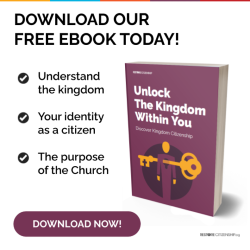Series 1 of 4 exploring how to deal with the carnal man.
The nature of our contention can be found in the Leviticus account. Here we find a man dwelling in the midst of Israel with a nature that harbours two extremes in contention. The bible is specific to record the root of the man's life (Israelite and Egyptian) so as to communicate the nature contending with God in the midst of Israel.
Reference scripture: Leviticus 24:10-23, James 1:8
Verse 10 - Now the son of an Israelite woman, whose father was an Egyptian, went out among the children of Israel; and this Israelite woman's son and a man of Israel fought each other in the camp.
The nature of our contention can be found in the Leviticus account. Here we find a man dwelling in the midst of Israel with a nature that harbours two extremes in contention. The bible is specific to record the root of the man's life (Israelite and Egyptian) so as to communicate the nature contending with God in the midst of Israel.
As the present truth of God was made manifest, the true nature of the man was revealed. Evidently the dispute that bought forth much hostility came about as a direct result of a conflict. A contention between two men, the one nature bound to the kingdom and another of duplicity at war within itself. This man in his nature harbours a contention within himself of two opposing forces, religious and worldly, these are diametrically opposed. And yes this is in just one man! These philosophies satisfy his own conscience until the Lords will begins to be revealed in the camp. These two opposing forces in one man are fuelled by the extremes of each other. As a result the whole nature is in conflict and unstable.
A typical example of this is the Buddhist belief of ying and yang. The Buddhist believes that man has two opposing forces existing within his nature. He believes that these originated in his creation and the purpose of his life is to bring balance that ultimately would bring harmony to the man's being.
This belief is in stark contrast to the word of God. Man was created good, but through direct rebellion fell into sin and as a result is corrupted and unable to free himself. As a result man needs a Saviour of an infinitely different nature that has the power to redeem him from his corrupt condition.
The man in the midst is a typical example of the state of the first Adam. As the first Adam sinned and sought to rectify his sin by coverings. So this man who in his nature is a sinner covers himself with religion and remains in turmoil. An unstable man in all ways and manifestations of life. His coverings prove to further destabilize his condition, as they do not deal with the root of the contention, rebellion and transgression against God.
Verse 11,12 And the Israelite woman's son blasphemed the name of the LORD and cursed; and so they brought him to Moses. Then they put him in custody that the mind of the LORD might be shown to them.
The results of this nature is blasphemous, the extremities serve no good purpose in God's will, rather its influences cause greater division and strife in the midst of the assembly.
Definition: custody of a person who is not under immediate physical control but whose freedom is controlled or restrained by legal authority.
In summary
- The true nature of men is revealed when there is a direct imposition of the truth through the revealed will of the Lord.
- Contention and ultimately blasphemy is produced as a result of duplicity.
- God does not share his mind with any other philosophy, thus there cannot be God's mind and another mind co-habiting.
- The bible is clear a double-minded man is unstable in all his ways (thus the conflict in the man is the extremes of religious and worldliness causing instability).
- The worldly and religious philosophies hold to an interpretation of God that satisfies his own conscience.
- These philosophies are at war in the same territory. Fuelled and weighted by each other's extremes.
- This man will attend the required services and prescribed formulas and steps to appease his own conscience.
- This man refuses judgment in his inward parts, and persists in carrying the inner appetites of the world.
- This man will not work out the faith with fear and trembling.
- The man is bound by the dictates of the extremes occupying him.
- Note that his mother (Israelite) was first mentioned. (The religion seen)
- This man wants to present the best, and so covers up the reality.
- Then his Father (Egyptian) last. (The worldliness unseen)
- The man wears a religious covering over nature that refuses to change.
- This man may carry at a glance the religious attributes, but on the inside is ravenous with worldliness.
- This man's appetites can only be found when one has drawn close and inspected his daily living and daily thoughts (As the account suggests by the fact of contention with an Israelite in the camp, the place of their daily living).
- The man in the midst only comes to the foreground when the truth begins to expand beyond current territories.
- The people sought by binding the man to restrain his further influence by placing him under the authority of a designated leader.
- The people clearly knew that the man's influences were detrimental to the community, and restrained further influence by placing him in custody.
Note: The custody was not the judgment, but the restraining until the Lord's will be made clear.





